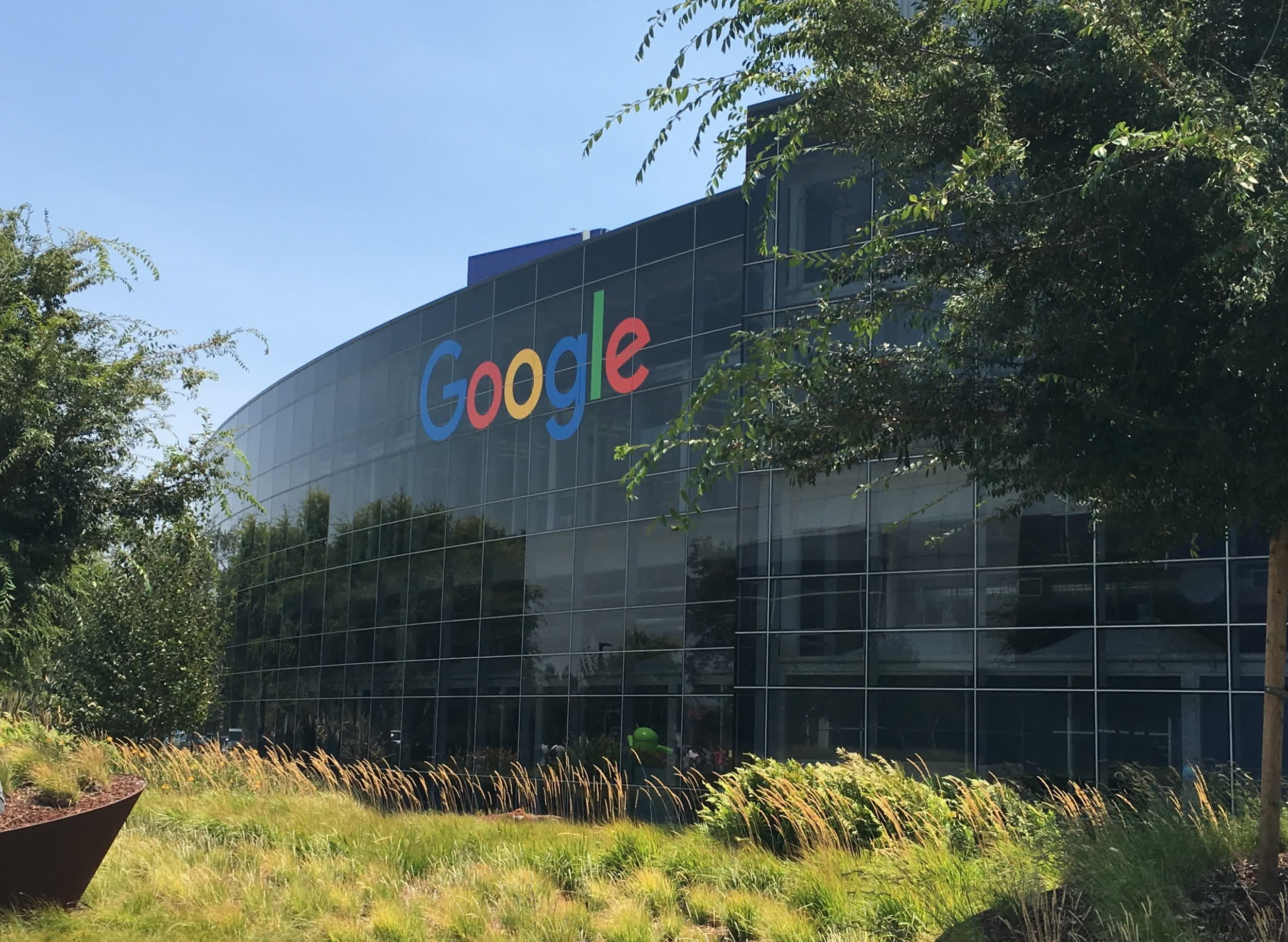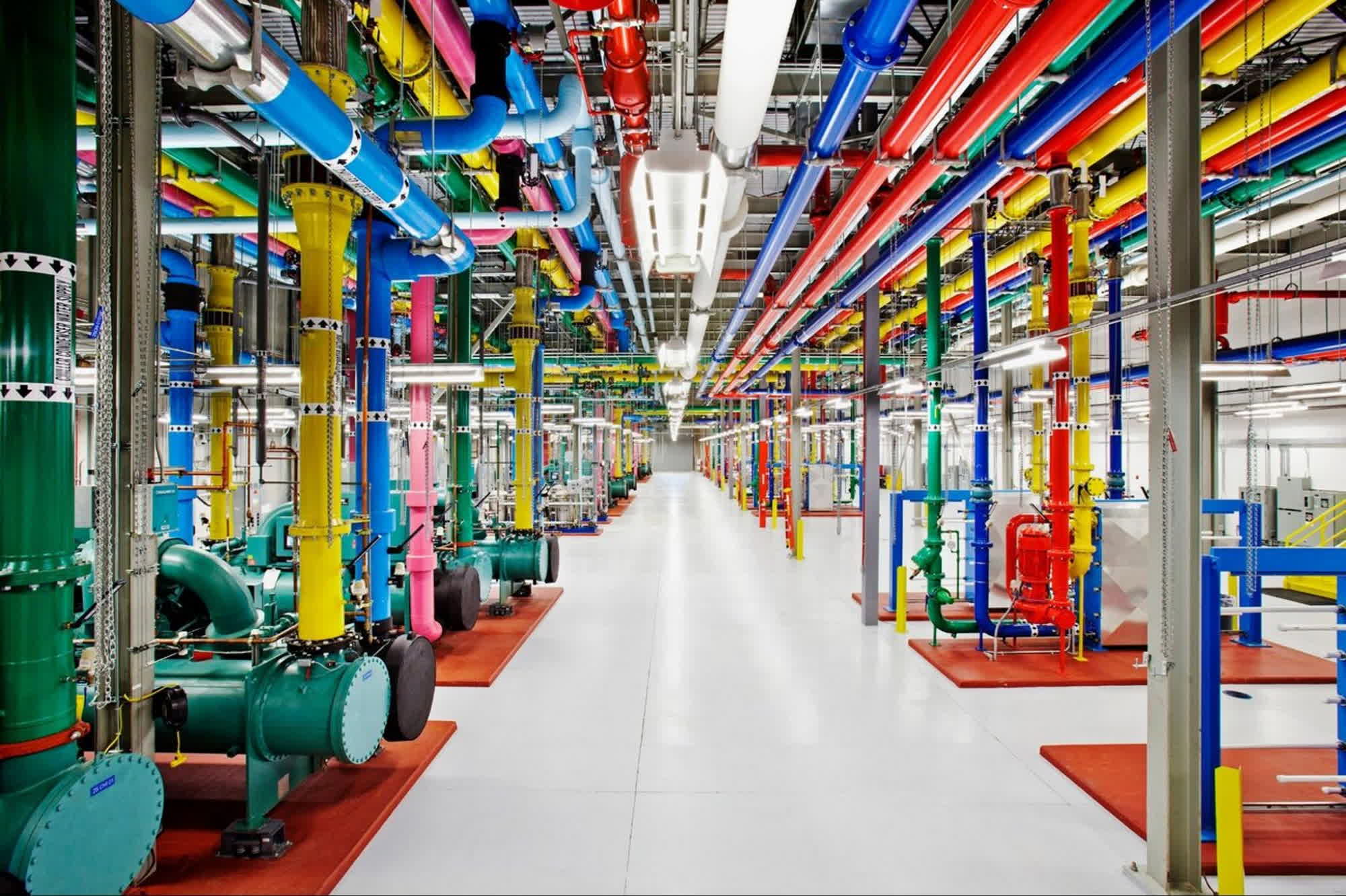In a nutshell: Despite being a fabless designer that does not sell chips to third party companies, Google is a true giant in the data center processor business. The Mountain View corporation has a significant market share that is poised to grow even bigger due to the recent AI explosion.
New research published by Tech Insights crowns Google as one of the largest chip designers in the data center world. Leveraging its unique expertise across multiple segments including the semiconductor supply chain and the ASIC market, TI states that Google's market share is comparable to more prominent chipmakers like Intel and AMD.
TI highlighted that Google pioneered custom AI accelerators with its Tensor Processing Units (TPUs) introduced in 2015, which have propelled the company past cloud competitors Microsoft and Amazon. In terms of market share, only Nvidia and Intel outperform Google.
Google shipped two million TPUs to its data centers worldwide last year, TI noted. The business saw significant growth in 2021 with the TPU v4, coinciding with the rise of large language models. Broadcom, Google's key partner in ASIC design, likely benefited the most from the TPU v4 introduction.

Google uses TPUs to accelerate internal workloads, while Nvidia GPUs handle cloud computing tasks. Tech Insights reported that in 2023, Google had the largest installed base of AI accelerators and the largest AI computing infrastructure. The company recently introduced its sixth TPU generation, known as Trillium, designed to enhance the AI Hypercomputer architecture.
TI also noted a significant inventory correction in the server market last year, as cloud hyperscalers invested in new accelerators and Nvidia AI GPUs. Microsoft and Amazon are also developing custom AI accelerators, with Azure Cobalt and Graviton, respectively.
Both Azure Cobalt and Graviton are Arm-based custom processors. Google recently introduced the Arm-based Axion processor to complement its TPUs. According to a report from Bernstein Research, Arm architecture is now used in 10 percent of the world's servers, with over 50 percent of those installed in Amazon's AWS data centers.
